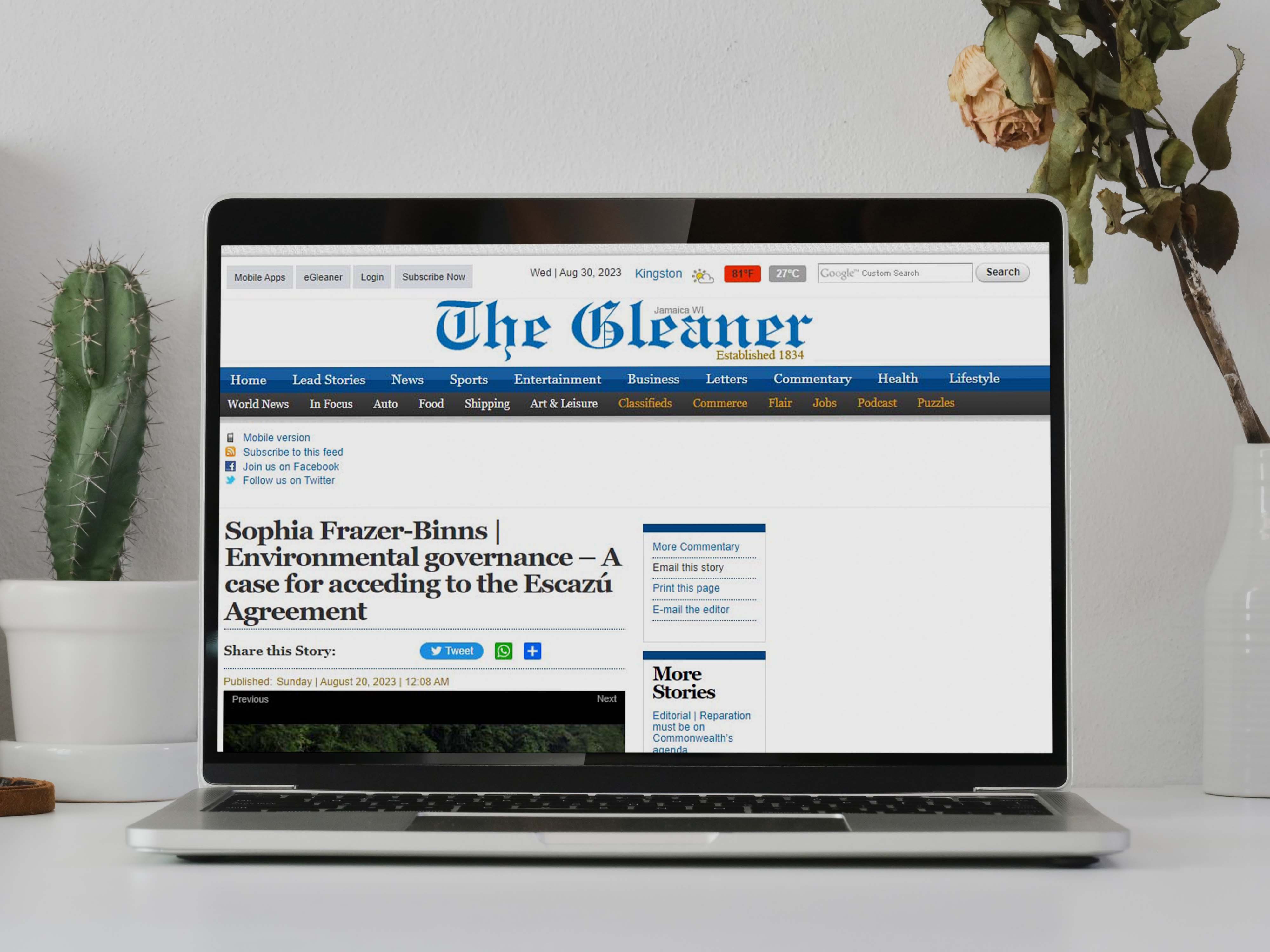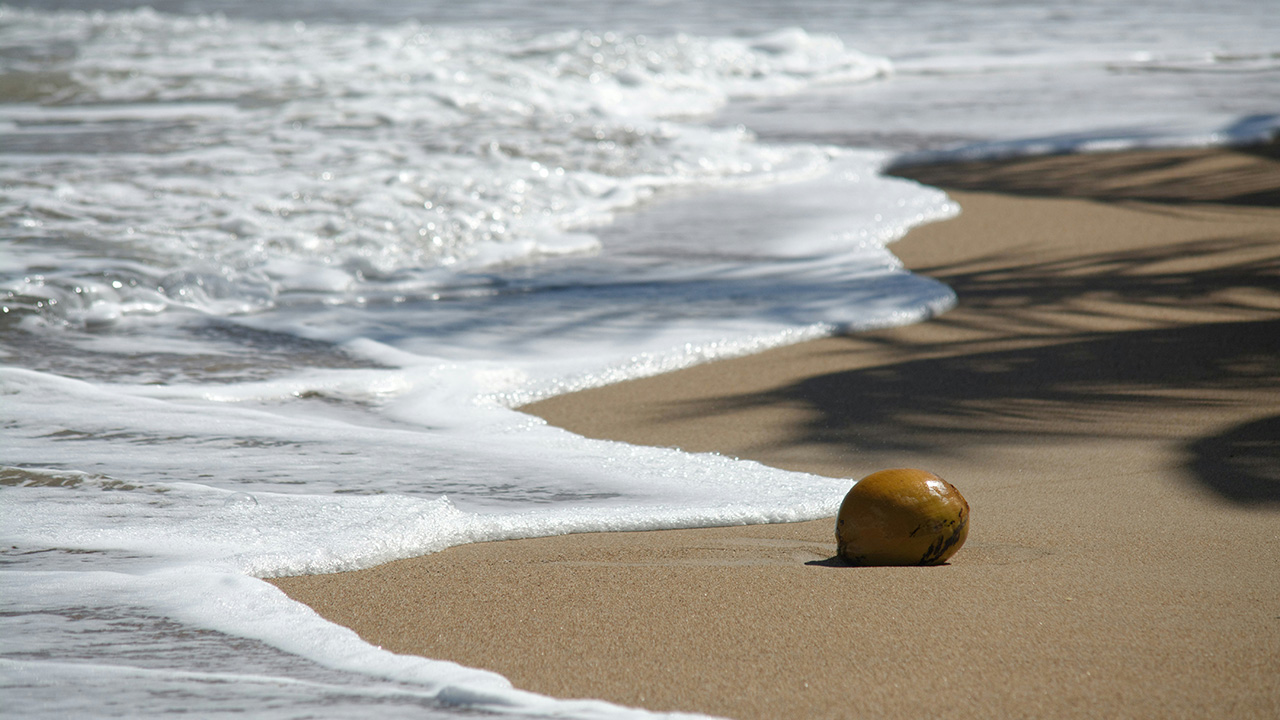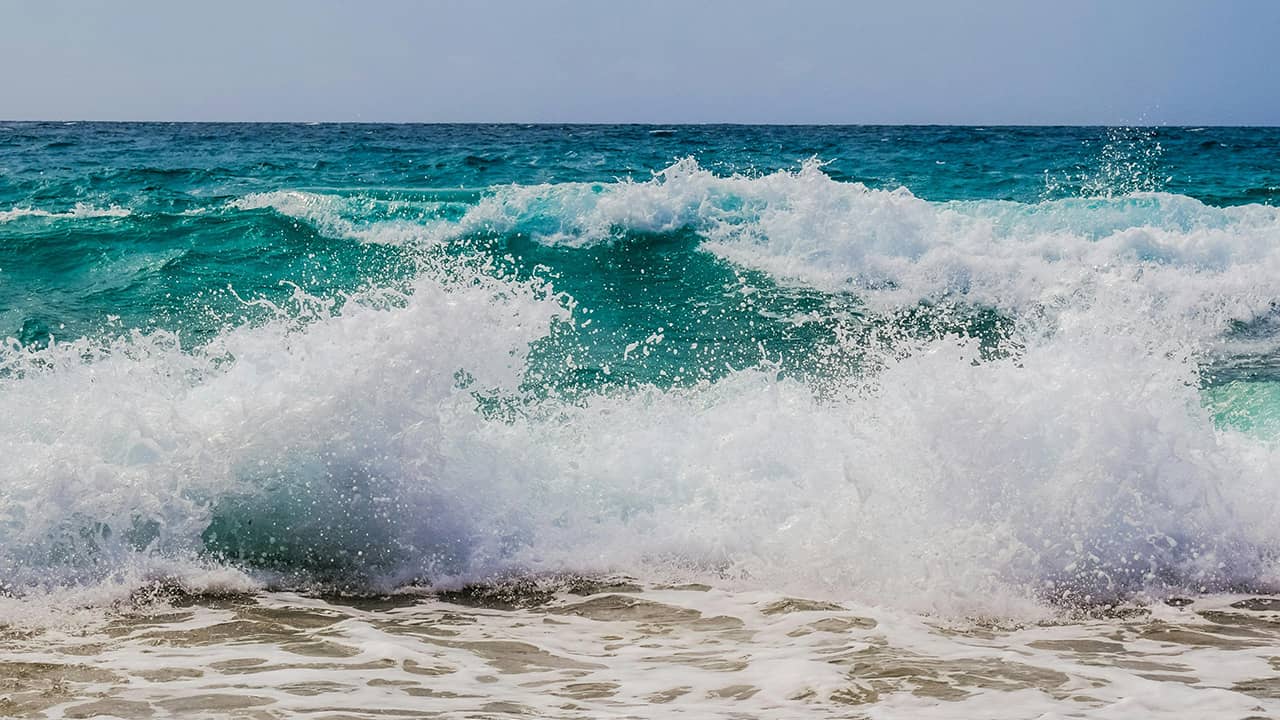

Sen. Sophia Frazer-Binns, Jamaica
In an era of pending climate departure, with the triple planetary crisis of climate change, biodiversity loss, and pollution, which poses an existential threat to Small Island Developing States like Jamaica, environmental governance and management have taken on a new meaning.
The United Nations Environment Programme (UNEP) states that “environmental governance comprises the rules, practices, policies, and institutions that shape how humans interact with the environment. Good environmental governance takes into account the role of all actors that impact the environment. From governments to NGOs, the private sector and civil society, cooperation is critical to achieving effective governance that can help us move towards a more sustainable future”.
The crucial elements of environmental governance are the rights of access to information, public participation, and justice (collectively called ‘access rights’). These rights are intertwined with financial, economical, social, and political considerations.
In Jamaica, there is no denying that currently, ‘environmental governance’ is not sufficiently mainstreamed in our approach to development.
Jamaica signed the Escazú Agreement in 2018. Today, 15 countries are parties to this groundbreaking Caribbean and Latin America Agreement, which went into force in 2021. Since then, efforts have been made to encourage the Government to implement it at a national level and move beyond its stated intention so to do.
The Escazú Agreement recognises, protects, and promotes the rights of all people in environmental matters and seeks to, among other things, champion environmental governance from a human rights-based approach through:
• Access to public participation
• Access to information
• Access to justice in environmental matters.
The Opposition is of the view that acceding to the agreement is a positive for good environmental governance by putting knowledge and power in the hands of the people; making them partners to the decision-making process in environmental matters.
PUBLIC PARTICIPATION
Lack of engagement of communities and the citizenry in the decision-making process have all given rise to increased tension and conflict between the State and the citizens. Encouraging participatory decision-making reduces social conflicts as there is greater consultation and community engagement. When people participate in the decision-making process, transparency, trust, a sense of fairness, mutual benefit, and understanding are the likely results.
In Jamaica, although environmental permits are required for a range of activities from mining to development, the general public does not have a right to be consulted when the decisions are being made to grant an environmental permit under the Natural Resources Conservation Authority (NRCA) Act but is done at the discretion of the authorities and part of internal guidelines.
At the same time when consultation is done, it is usually undertaken in a way where documents are bulky and contain legalese and technical terms that make it difficult for regular persons to understand. In a post-Escazú arrangement, public participation in environmental decisions would be prioritised.
ACCESS TO INFORMATION
In looking at public participation, it is accepted that participation can only be done where there is access to information. Access includes information that is readily available and provided in a way that is easily understood. If people have access to information, they will be more likely and better able to participate in decisions that affect them. They are also better equipped to hold the State accountable.
The Access to Information Act urgently needs to be reviewed and updated. The act allows persons to request information from the Government on environmental and other matters. However, too often, citizens are frustrated by a protracted process. Nor is it unusual for requests to be denied, and persons then have to resort to filing an appeal to the Appeal Tribunal.
Apart from instances of natural disasters, there is no proactive sharing of information when it comes to treating with other emergencies. For example, when there are fires at the Riverton City Waste dump. There is no system to readily and immediately release information on what is happening, where it is happening, and the extent to which persons and the various communities are affected.
This is also evident in how the State has treated with the communities and activities in the proximity of water bodies such as the Rio Cobre. There is no system in place to proactively disseminate information to the residents about the number, nature, and duration of permits that are given for various works in those areas. Additionally, there is no provision in place to proactively share information such as the data and results of water-quality testing and results of investigations whenever said water bodies are contaminated as evidenced in the Rio Cobre situation. Information is often provided only after it is requested under the Access to Information Act or through public pressure and the media. Proactive sharing of information would build trust and confidence in the state systems.
Similarly, there is need to enforce existing polices and laws that encourage greater access to information such as the Permit Register. The law says that there should be a public permit registration system which provides information on permits and licences issued by the NRCA and is available to the public for inspection at all reasonable hours. Yet checks have revealed that this system is not operational. There is also the online Amanda System, which has excellent potential, if only it worked well.
Our environmental information systems must be modernised to allow for greater and more reliable and timely access to information. Acceding to the Escazú would be a crucial step in this direction.
ACCESS TO JUSTICE
Globally, it has been only one year since the United Nations unequivocally recognised the right of all persons to a clean, healthy, and sustainable environment as a human right. In Jamaica, this right has been long recognised through our Constitution.
While persons are becoming familiar with this right, there is a large section of the society that remains unaware of this human right. More must be done to get the entire population aware and provide them with the resources to enforce them.
If we are to effectively provide access to justice in a timely manner, we must modernise our legislative, regulatory, and policy framework. While steps have been taken to articulate modern policies in the area of climate change and justice, there remains a clear deficit. Our legislative and policy framework does not prima facie support inclusive environmental governance.
Real access to justice requires timely resolution of environmental matters before our courts. The cases on the Rio Cobre are examples of how environmental matters in our courts languish for various reasons. It may be useful to consider a special tribunal or division of the court charged with dealing with environmental matters.
Acceding to the Escazú Agreement will compel the State to act in a way that embraces the key principles of the agreement. Good governance requires that environmental enforcement bodies and supporting environmental legislation be modernised and given support through strong and unequivocal enforcement.
Jamaica is seeing an increase in environmental cases concerning the approval process for mining, beach access rights where traditional bathing beaches are privatised without public participation. As the first regional environmental agreement of the Caribbean and Latin America, the Escazú Agreement is an opportunity for Jamaica to model in concrete terms our Constitutional human right of every person of present and future generations to live in a clean, healthy, and sustainable environment.
Acceding and implementing the agreement is not and will not be the panacea for good environmental governance, but it is a start that is most welcome.
Sophia Frazer-Binns is a senator, an attorney-at law, and shadow minister of land, environment and climate change. Send feedback to lecchange@gmail.com.






